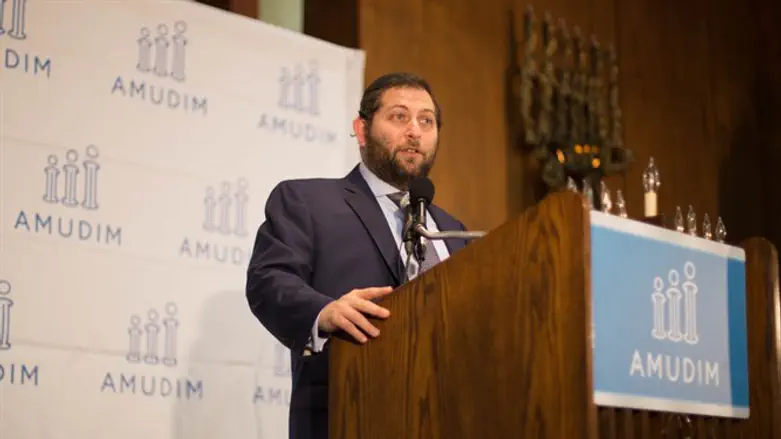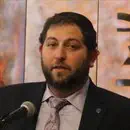
As we prepare to mourn the destruction of the Bait Hamikdash and numerous other communal tragedies that have befallen us throughout the generations, our thoughts naturally turn to understand how these matters relate to us both individually and collectively.
Over the years, I have written many Tisha B’Av messages dedicated to getting people who have generally been spared hardship to appreciate the anguished existence of those who live in the shadow of trauma. But today, the concept of churban strikes closer to home than ever before, and I doubt that any of us could have imagined that we would be living in a time where uncertainty and hopelessness reign supreme, and pain and suffering are daily occurrences.
And yet even in these difficult times, we still need to recognize the positive elements around us. Our phones at Amudim have been ringing off the hook since the onset of COVID-19, the difficulties of the pandemic, quarantine and severe restrictions prompting many who might not have otherwise reached out to finally take that first brave step of getting their lives back on track.
While there are those who look at the unprecedented number of cases as cause for serious concern, in truth, that reality is bittersweet. Clearly, there are people experiencing difficulties; but we know from experience that a rise in call volume doesn’t necessarily indicate an increase in personal challenges, but 
If I were empowered with the ability to add an additional kina to our Tisha B’av repertoire, it would implore the One Above to help those for whom abuse, addiction, mental health issues and domestic violence are a very painful reality. rather, that those facing issues are finally speaking up and looking for solutions, which is a positive development.
rather, that those facing issues are finally speaking up and looking for solutions, which is a positive development.
When we discuss the destruction of the Temple, the Holocaust and other national tragedies, we often say ‘ayn bayit asher ayn sham meit’ - there is no house that has been spared misfortune. And yet somehow, when we speak about those suffering from abuse, addiction, mental health concerns or domestic violence, we don’t see things in the same light, though we all know someone who has been affected by those issues. It is easy for us to take on three weeks of mourning, nine days of added stringencies, and a full day of crying, fast and prayer and then move on with our lives; but the reality is that there are many who continue mourning, crying and praying for years, and in some cases, a lifetime.
While it is crucial for us to follow the centuries-old tradition of grieving our past sorrows, it is equally vital for us to mourn the present. We need to cry for those in unbearable pain through no fault of their own, and to feel the agony of those whose constant anguish has left them numb. If we learn one thing from the global COVID-19 pandemic, let it be that no one is immune to pain and suffering, and that we need to channel our collective heartache into constructive efforts to lighten their loads. Our goal cannot and should not be to change the entire world – instead, each of us should focus on changing one person’s world for the better so that we can head off future tragedies and prevent their occurrence.
If I were empowered with the ability to add an additional kina to our Tisha B’av repertoire, it would implore the One Above to help those for whom abuse, addiction, mental health issues and domestic violence are a very painful reality, imbuing them with strength, guiding them on the road to healing, and providing them with proper resources and care so that they can live healthy and productive lives. Instead, I ask of each of you-that just as you pray and cry on Tisha B’Av for all of the terrible misfortunes that we as a nation have suffered, take time this year to utter your personal request on behalf of those whose ongoing pain is a constant, present reality.
Let me leave you with one final thought. The tragedies traditionally mourned on Tisha B’Av happened in the past and aren’t within our power to change. But there is no greater tragedy than not taking action on issues occurring today, all around us so that we can prevent the need to mourn new and untold catastrophes.
Zvi Gluck is the CEO of Amudim, an organization dedicated to helping abuse victims and those suffering with addiction within the community, and has been heavily involved in crisis intervention and management for the past 20 years.
